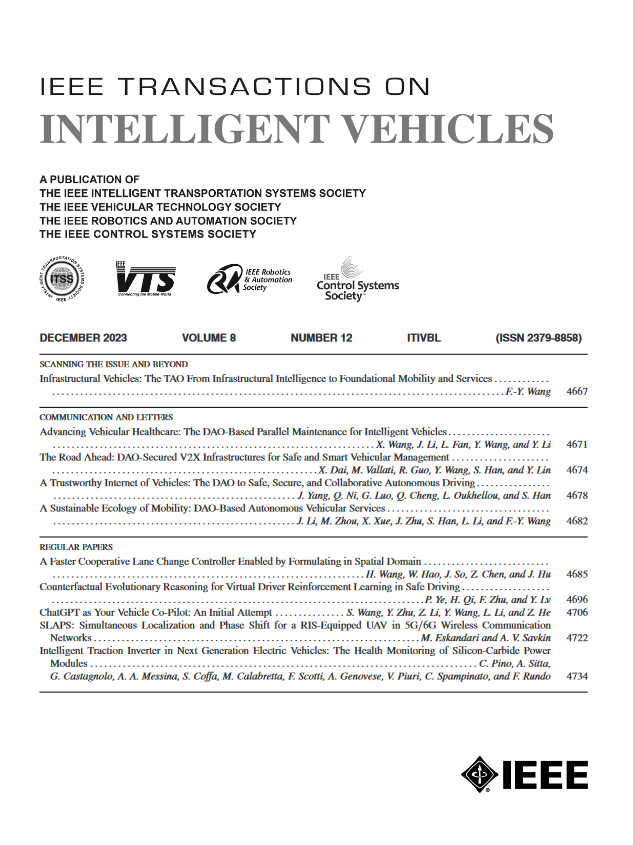Navigating Partially Unknown Environments: A Weakly Supervised Learning Approach to Path Planning
IF 14
1区 工程技术
Q1 COMPUTER SCIENCE, ARTIFICIAL INTELLIGENCE
引用次数: 0
Abstract
In fire rescue missions, the critical research concern revolves around enabling autonomous path planning for mobile robots to quickly and safely navigate to target points. This paper focuses on sampling-based path planning methods under weak supervision. In order to enhance path quality and computational speed, we employ deep learning to perform non-uniform sampling on sampling-based methods, focusing on regions where optimal paths are more likely to exist. Specifically, the generation of non-uniform sampling regions is regarded as a semantic segmentation problem. In this context, diverse map information is utilized to predict non-uniform sampling regions. Inspired by attention mechanisms in deep learning, we propose an attention-guided model for non-uniform sampling path planning. The learning-driven path planning process comprises offline dataset generation, model training, and online model prediction. However, the offline dataset generation is often time-consuming and resource-intensive. To address this challenge, we propose a weakly supervised strategy, which necessitates the generation of only one single path as ground truth per scenario in semantic segmentation training. Furthermore, considering the potential existence of unknown obstacles along the reference path in real-world settings, we leverage deep reinforcement learning to ensure collision-free path tracking in unknown environments. Finally, extensive experimental simulations are conducted to verify the performance of the attention-guided model and collision-free tracking, and demonstrate the superiority of our proposed weakly supervised strategy.导航部分未知环境:路径规划的弱监督学习方法
在火灾救援任务中,关键的研究问题是如何实现移动机器人的自主路径规划,以快速安全地导航到目标点。本文主要研究弱监督下基于抽样的路径规划方法。为了提高路径质量和计算速度,我们采用深度学习对基于采样的方法进行非均匀采样,重点关注最优路径更可能存在的区域。具体来说,非均匀采样区域的生成被视为一个语义分割问题。在这种情况下,利用不同的地图信息来预测非均匀采样区域。受深度学习中注意机制的启发,我们提出了一种非均匀采样路径规划的注意引导模型。学习驱动的路径规划过程包括离线数据集生成、模型训练和在线模型预测。然而,离线数据集生成通常耗时且资源密集。为了解决这一挑战,我们提出了一种弱监督策略,该策略需要在语义分割训练中每个场景只生成一条路径作为基础真理。此外,考虑到在现实环境中参考路径上可能存在未知障碍物,我们利用深度强化学习来确保在未知环境中无碰撞路径跟踪。最后,进行了大量的实验仿真,验证了注意引导模型和无碰撞跟踪的性能,并证明了我们提出的弱监督策略的优越性。
本文章由计算机程序翻译,如有差异,请以英文原文为准。
求助全文
约1分钟内获得全文
求助全文
来源期刊

IEEE Transactions on Intelligent Vehicles
Mathematics-Control and Optimization
CiteScore
12.10
自引率
13.40%
发文量
177
期刊介绍:
The IEEE Transactions on Intelligent Vehicles (T-IV) is a premier platform for publishing peer-reviewed articles that present innovative research concepts, application results, significant theoretical findings, and application case studies in the field of intelligent vehicles. With a particular emphasis on automated vehicles within roadway environments, T-IV aims to raise awareness of pressing research and application challenges.
Our focus is on providing critical information to the intelligent vehicle community, serving as a dissemination vehicle for IEEE ITS Society members and others interested in learning about the state-of-the-art developments and progress in research and applications related to intelligent vehicles. Join us in advancing knowledge and innovation in this dynamic field.
 求助内容:
求助内容: 应助结果提醒方式:
应助结果提醒方式:


